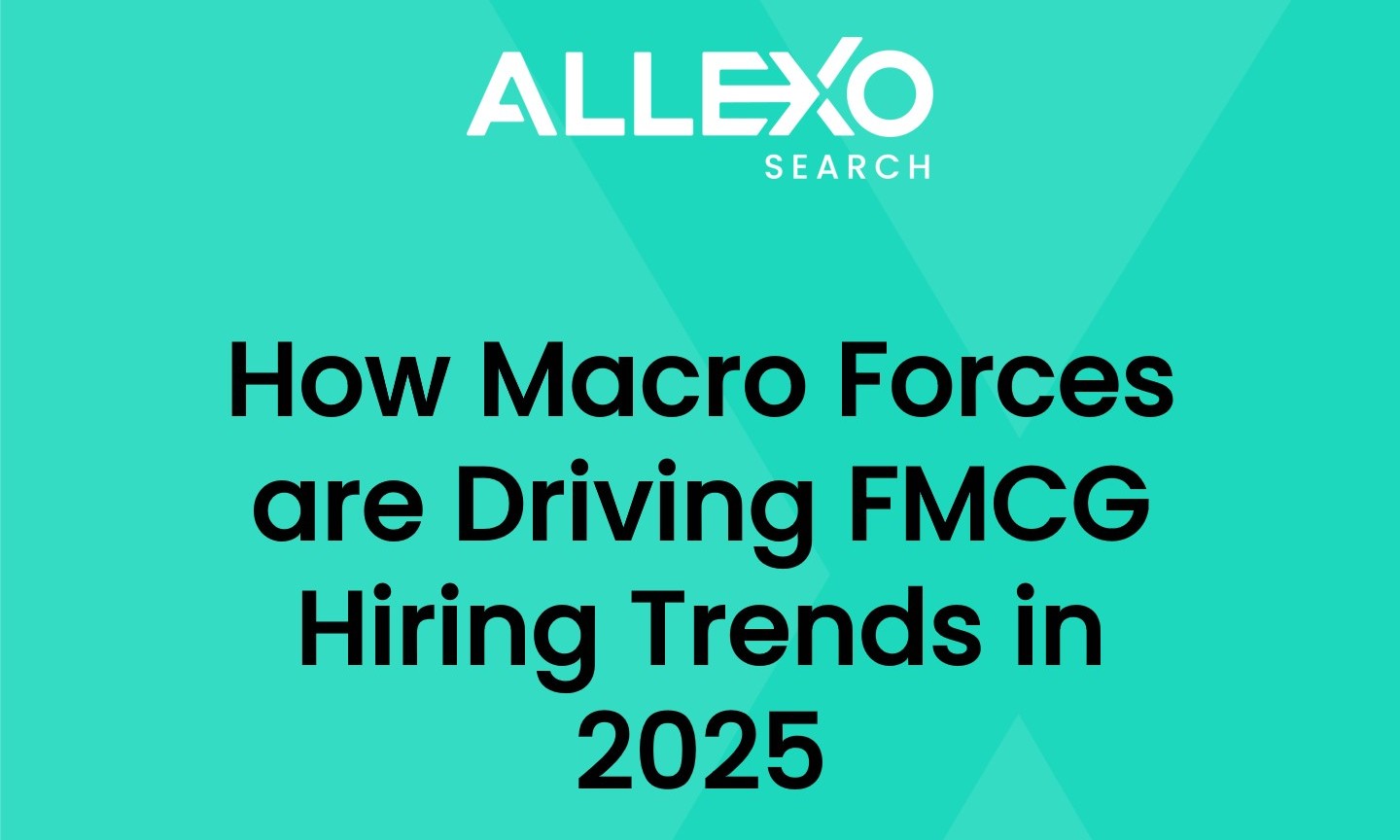If you're hiring—or job hunting—in the world of FMCG marketing and sales right now, you don’t need reminding that the game has changed.
2025 has brought with it a complex cocktail of macroeconomic pressures, evolving skill requirements, and shifting expectations. Whether you're a hiring manager under budget pressure or a candidate weighing up your next move, it’s clear: recruitment isn’t just about filling gaps anymore. It’s about future-proofing teams in a fast-changing landscape.
Here’s how we’re seeing these macro forces play out across UK FMCG—and what it means for commercial talent on both sides of the hiring table.
1. Budget Pressure Meets Talent Inflation
Despite easing inflation in consumer markets, wage expectations haven’t dropped. Salaries—especially for digital and commercially strategic roles—remain high, and many candidates have recalibrated what they see as “fair value.”
At the same time, businesses are facing increased employment costs. National insurance hikes, elevated living wage thresholds, and broader cost-of-living adjustments are putting pressure on headcount budgets. As a result, we’re seeing greater scrutiny around new hires, with many FMCG companies prioritising strategic, high-impact roles over like-for-like replacements.
There’s no doubt: cost-to-hire conversations have become tougher. But so has the competition for high-calibre talent.
2. The Skill Gap Is Now a Priority, Not a Problem
Many of our clients are facing the same reality—traditional FMCG skill sets no longer match the demands of today’s commercial landscape.
In marketing, the rise of AI, automation, and performance-driven brand building is shifting the dial. Strong storytelling still matters—but candidates also need to speak the language of data, experimentation, and tech integration.
In sales, the move towards omnichannel, value-based selling and retail media networks has redefined what “good” looks like. Field roles are evolving into insight-led, commercially consultative positions. Category, revenue growth, and digital activation experience are increasingly must-haves, not nice-to-haves.
The result? A significant mismatch between the roles companies need to fill and the talent readily available on the market.
3. Hybrid Expectations Need Reframing
Most FMCG businesses have now settled into hybrid working—but what that looks like varies widely across functions and organisations.
Candidates are still prioritising flexibility, particularly in marketing related roles. But we’re seeing some employers recalibrating expectations, with more emphasis on in-person collaboration, especially for cross-functional teams or earlier-career talent.
Transparency here is critical. Hybrid is no longer a perk—it’s a standard with parameters. Misalignment between expectations and reality is one of the most common causes of candidate drop-off in later hiring stages.
4. EVP and Purpose Are Playing a Bigger Role in Decision-Making
Candidates today aren’t just shopping for a job—they’re looking for alignment. Purpose, culture, growth potential and work-life balance regularly come up in candidate conversations with our team.
For FMCG brands, this means your employer value proposition (EVP) can’t be left to HR. It needs to be visible, consistent, and lived—from job adverts to interviews to onboarding.
Companies that can clearly communicate why they exist, how they treat their people, and where they’re headed are winning top talent—especially in a market where purpose-led FMCG brands are outperforming.
5. Rethinking Recruitment Strategy
In light of all this, we’re seeing forward-thinking FMCG businesses take a more proactive, strategic approach to hiring:
-
Building in-house capability: Many are investing in upskilling and internal mobility to close skill gaps and reduce reliance on external hires.
-
Hiring for potential: Rather than waiting for the ‘perfect’ candidate, some companies are pivoting to high-potential profiles who can grow into a role.
-
Creating future-ready roles: We're helping clients redefine job specs—not around how the role was done pre-2020, but what it should look like now.
These shifts are subtle, but they matter. In a market where talent supply doesn’t meet demand, how you approach recruitment becomes a competitive advantage in itself.
Looking Ahead
For marketing and sales leaders in FMCG, recruitment in 2025 is no longer a transactional process. It’s a strategic lever—one that can drive competitive edge if done well, or quietly stall growth if not.
And for candidates? The good news is that opportunities are there—but expectations are higher. Hybrid skills, commercial thinking, adaptability and cultural fit are under the spotlight more than ever.
Whether you’re building your team or shaping your next move, the questions have changed. We’re here to help you ask the right ones—and find the people who can answer them.




